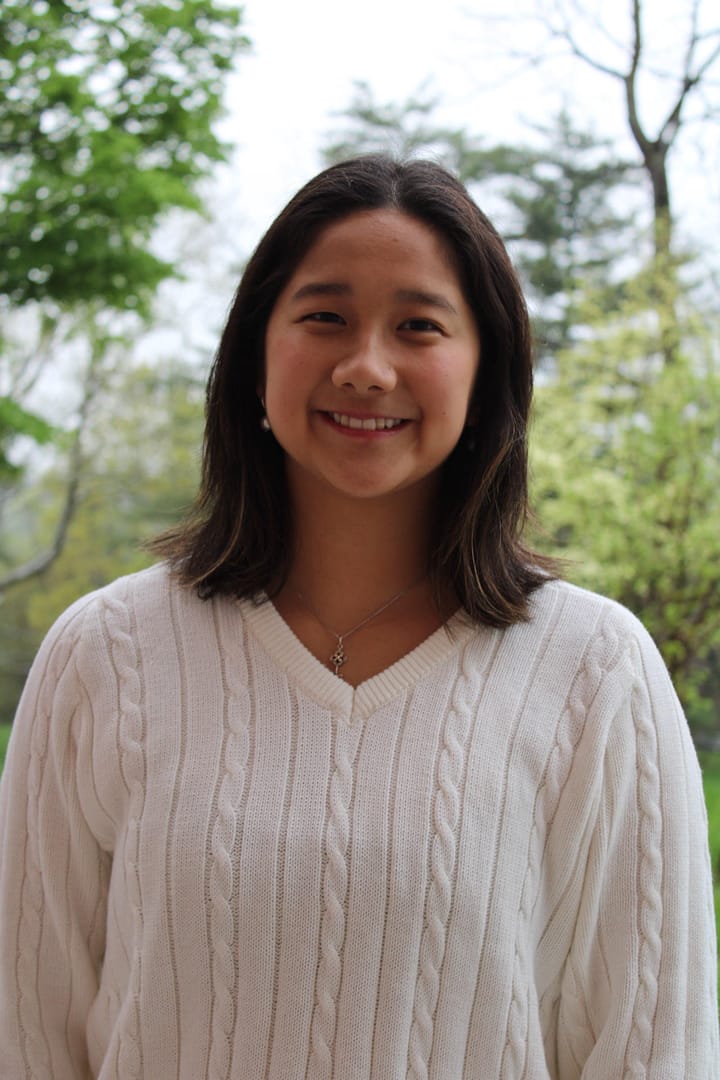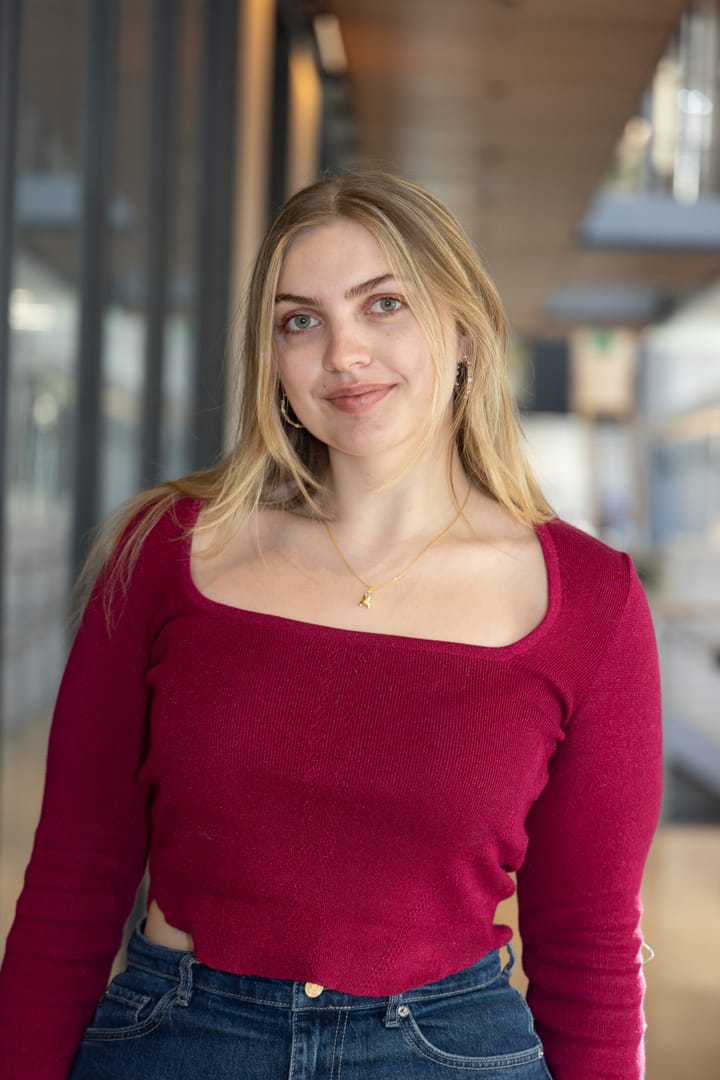An Inside Look Into This Year’s Pandemic Protocol Shifts
Several community members perceived this fall's relaxed Covid protocols as a large shift in college policy following two years of restrictions. The Student explores the administration’s reasoning behind the shift.
Vanessa Fong, the Olin professor in Asian studies, has continued to hold her classes outdoors with required physical distancing and masking this semester.
“I’m at risk for severe COVID outcomes,” she wrote in an email to The Student. “Also my anti-COVID reputation attracts a larger than usual proportion of students who want to avoid COVID, so I need to keep my class safe.”
While protocols like Fong’s were more typical in previous years, they are now the exception. As the college has ended mandatory surveillance testing, off-campus isolation, and widespread mask mandates this fall, several community members have felt that the college has abandoned the caution that has characterized the college’s Covid policy in the past two years.
“There is a lot less effort to track cases and meaningfully implement mask mandates,” said Tylar Matsuo ’24. “There is a broader issue of not taking Covid seriously … and that’s deeply concerning.”
Underlying the policy changes, however, has not been a change in the college’s values, but rather the emergence of new tools to respond to the virus and the shifting nature of the virus itself, said President Michael Elliott and other members of the administration.
“We have a robustly vaccinated student population, which we know protects against severe illness and adverse outcomes,” said Director of Student Health Services Emily Jones. “We are now dealing with variants of Covid that are so contagious it is impossible to devise policies that prevent all infections or some spread.”
Guiding Values
The Health Readiness Group (HRG) — made up of administrators, medical staff, financial officers, and faculty who weigh various elements of campus well-being in their decision-making process — is responsible for the college’s Covid protocol changes.
Elliott, who is responsible for approving the HRG’s proposals, said that his Covid response was not very different from former President Biddy Martin’s: “We both try to use the best resources and the best evidence available to support our policies.”
The college continues to follow rates of infection in the county, which are available on the college’s Covid dashboard, and the Covid patterns in nearby large cities, like Washington D.C. and New York City, because “those were bellwethers,” Kate Salop, Chief Strategy Officer, said. “We’d say: What are they learning? What do they see? What are they doing? What should we be prepared for?”
The HRG considered the safety of on-campus staff in addition to students, Salop said.
“Think about our janitorial staff or our dining services staff — their roles require them to be interacting in a very close way with students in dining halls and in residence halls where they're unmasked,” Salop said. “What are we doing that allows our students to be more relaxed and have a real experience, [while also being] respectful and appropriately protective of our staff.”
However, “It’s not always about [the medical side]. It’s [also] about what other values we are holding,” said Salop.
Student mental health has been one of these values.
“We were very aware of the impact [masking 24/7] was having on your mental wellbeing and your social connections,” Salop said. In addition to “masking all the time,” the 10-day isolation period was a “frustrating experience” for many, Salop said.
The vitality of the community has been a particularly important consideration.
“We’re recognizing the impact it’s having on us as an institution and as a community not to have these moments [of gathering] together,” said Salop. “We heard from all members: ‘we want to be in community with one another.’ This is a really important part of the Amherst experience.”
A Change in the Balance
Due to these impacts on community well-being, the HRG has been looking at relaxing protocols for a long time.
Salop said that in early summer 2021, the HRG was prepared to open up campus with some of the policy changes implemented this fall. Then, the Delta variant hit, leading to a national spike in cases and a change in college policies, which led to masking requirements in residence halls, mandated weekly testing, and early restrictions on indoor dining.
However, changes in the nature of the pandemic made the decision different this year.
Earlier on in the pandemic, access to vaccines was more limited, but now access has been expanded, allowing the campus to have two on-campus bivalent booster clinics, Jones said. The college tracks vaccine status for each student in their medical chart to assure that they are up to date with all vaccines, per state regulations and college requirements, Jones added. There is also increased availability of medication to mitigate the virus’ effects.
Conversations about this semester’s Covid policy started informally in mid-May, in conjunction with Martin, Elliott said.
Although many students perceived the fall’s protocols as a dramatic transition, these changes have been part of a gradual process, Elliott said.
There was a “natural evolution” of protocols throughout the summer, Salop said.
This was because there were fewer students on campus, so the college could test out new policies and carry them through the fall as case numbers were decreasing, Salop added.
The changing circumstances of the pandemic allowed the college to prioritize student mental and social health.
As a result, the college removed the mask mandate in residence halls, and changed protocols for ending the 10-day isolation period so that “[students] aren’t going back to the residence hall when they’re still infectious, but we’re not keeping them [offsite] any longer than needed,” Salop said.
“I have seen that our students [now] feel less fear and stigma when they get Covid,” Jones said. “Students seem to be learning to navigate living with Covid and trying to make choices that protect their health and the health of their community, [while] also enjoying their college experience.”
Getting rid of surveillance testing was fueled by the realization that it wasn’t playing the same role as it did at the beginning of the pandemic: “we could never catch up,” Salop said. “We can test and test and test, but you could test [negative] in the morning and [positive] by the afternoon.”
Students Call for Communication
Rachel Willick ’25 said that she often finds herself trying to puzzle out the logic in protocol decisions, adding that she would have appreciated knowing the status of an on-campus booster clinic further in advance.
“It would have been nice if they told us at the very beginning, ‘Hey, we're trying to get a clinic, but the state is being sort of stingy with boosters right now, because college students are not a high risk group,’” Willick said. “I’m frustrated when the administration does not communicate effectively.”
“I’m a big fan of communication,” Willick added. “It seems, though, that the college doesn’t communicate anything unless students specifically ask.”
Elliott said that communication about changes can be hard because the college is constantly obtaining information about the virus from different sources.
“We’re just going to have to keep on communicating and spend some time with AAS later this semester,” he added.
Future Resilience
The college has maintained the capacity to return to weekly surveillance testing and off-campus isolation if needed, Elliott said.
Elliott added that the college might always have to move quickly to adapt Covid policies in response to changing circumstances. Fortunately, with the current policies and state of the virus, the modifications the college would have to make would be fairly minimal even if cases increase.
“I’m impressed by the resilience from students, who have adapted and are much more reasonable than other segments of the American population,” Elliott said. “We simply can’t predict what changes might come. I realize that creates a lot of anxiety but I don’t think the nature of a pandemic allows us to dispel the uncertainty entirely.”
Anyone in the community is welcome to voice their concerns to covidtesting@amherst.edu and those concerns will be forwarded to the Health Readiness Group. The AAS may also forward concerns on behalf of the student body.





Comments ()